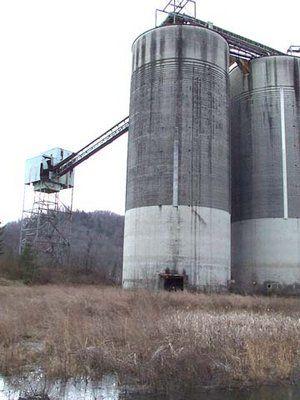Front Porch Blog
Editor’s Note: This blog was updated on Jan. 21. It is part of an ongoing series about coal bankruptcies and business changes affecting Central Appalachia. Read more about the history of Westmoreland Coal here.
Westmoreland Coal Company’s ongoing bankruptcy case could have ramifications in Central Appalachia, even though the company in question now largely operates in the western United States. Westmoreland, the oldest coal company in the country, has many historical ties to Southwest Virginia including its connection to the company Penn Virginia, which also experienced a bankruptcy in 2016.
While Westmoreland has not operated in Virginia since the 1995 closing of the Bullitt Mine in Wise County, there are still many former coal miners in the area who draw their retirement benefits from Westmoreland Coal Company. Westmoreland ran a small office outside of Appalachia, Va., until 2014.
In October of 2018, Westmoreland Coal Company filed for Chapter 11 in the United States bankruptcy court in Houston, Texas, with a reported $1.4 billion in debt. Chapter 11 bankruptcy allows Westmoreland to restructure its debts. Its filing proceeding can be found from a link on the Westmoreland webpage.
According to Reuters, on Jan. 16 Westmoreland submitted a filing in U.S. Bankruptcy Court requesting approval to terminate retiree benefits and its collective bargaining agreement with the United Mine Workers of America.
The United Mine Workers of America has not yet issued a response to the most recent filing, but the union has objected to earlier reports of Westmoreland’s restructuring plan citing concerns about health and retirement benefits. They are also concerned that Westmoreland filed paperwork offering up to $200,000 annually to 243 of its 1,723 employees through a ¨valued-employee program¨ that the union believes will come at the cost of mine workers.
Former Westmoreland employee, UMWA member and Wise county native Bethel Brock wrote a personal letter to the judge presiding over the bankruptcy hearing, asking him to be fair to the working miners. Bethel has black lung and is concerned about Westmoreland’s ability to pay his health benefits. The court docket lists close to a hundred people who have sent such letters to Judge David Jones.
“It is a shame these corporate executives are still expecting large paychecks in this bankruptcy while miners with black lung will could potentially lose their benefits,” Brock says. “This is how corporate greed works.” In addition to writing letters, Brock is a committed advocate for miners’ health, having created multiple chapters of the Black Lung Association across Central Appalachia.
In Wise County, Va., most of Westmoreland’s assets have been sold to other companies following its bankruptcy in the ‘90s. The old Bullitt Mine complex is now owned by A & G Coal.
Still, other environmental groups have cited concerns about Westmoreland’s reclamation liabilities. According to The Denver Post, Westmoreland has formerly stated it has enough money in bonds to cover its reclamation costs across the United States.

Two of the six Westmoreland coal silos near Appalachia, Va., which have since been demolished. Photo courtesy of The Post
On January 22, Westmoreland plans to auction all of its assets and liabilities. It is unclear at this time what the sale will mean for former mine workers across the nation, though several have elected to protest in front of the company headquarters in Colorado.
Recently, a group of senators released a bill called the American Miners Act of 2019 to help resolve the issue. According to a press release issued by Virginia Senators Mark Warner and Tim Kaine, two of the bill’s sponsors, more than 500 Virginians could lose their health care benefits, and over 7,000 Virginia pensions are at risk due to the Westmoreland bankruptcy. The American Miners Act would shore up the UMWA Pension Plan and ensure healthcare benefits for miners affected by 2018 coal bankruptcies.
The bill would also extend the coal excise tax that supports the Black Lung Disability Trust Fund at its current rate. The tax was cut in half at the end of 2018. Read more about the efforts to support black lung benefits here.
The bill is also sponsored by Senators Joe Manchin (D-W.Va.), Sherrod Brown (D-Ohio), Doug Jones (D-Ala.) and Bob Casey (D-Pa.)
PREVIOUS
NEXT
Related News

Leave a comment
Your email address will not be published. Required fields are marked *


Leave a Comment